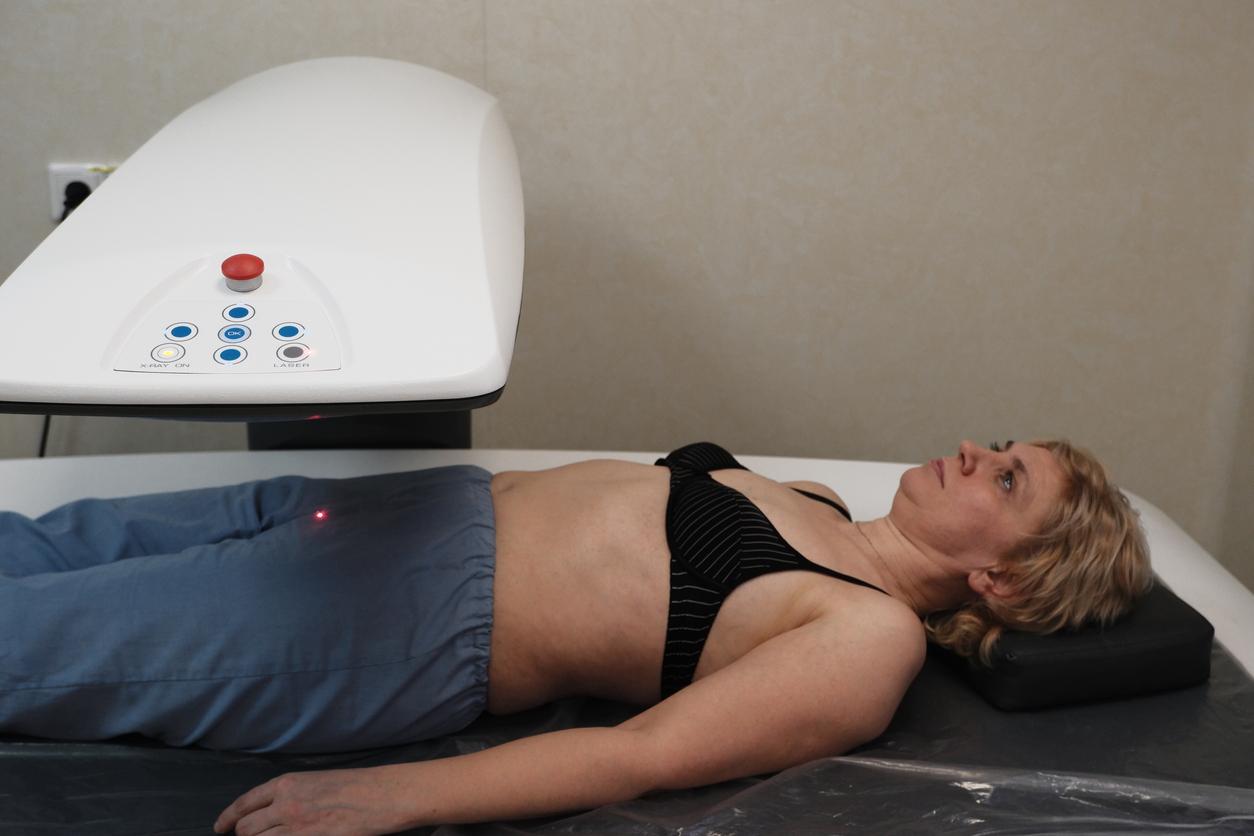A 30 to 40% reduction in the rate of Covid-19 infection has been observed in patients treated for osteoporosis.

- By modifying the inflammatory response and acting on cytokines, certain osteoporosis treatments such as denosumab and zoledronate reduce the risk of Covid-19 infection, as well as the risk of developing a severe form of the disease.
What if certain drugs used to treat rheumatic diseases or loss of bone density could reduce the risk of Covid-19 infection, or at least of developing a severe form?
This is the conclusion reached by researchers from the Medical Research Institute of Del Mar Hospital (IMIM) and Pompeu Fabra University (Spain). Their study, the first of its kind in the world, has just been published in the journal Agingand highlights the protective effect of certain osteoporosis treatments, denosumab, zoledronate and calcium, against Covid-19.
“There are indications that certain drugs used to treat rheumatic diseases could positively interfere in the natural history of Covid-19, either by decreasing its incidence or by reducing its progression to more serious cases”explains doctor Jordi Monfort, head of the rheumatology department at Hospital del Mar and coordinator of the research group on inflammation and cartilage at Hospital del Mar.
A 30 0 40% lower incidence rate
Noting the low incidence of the pandemic in some of their patients, the researchers decided to analyze data from more than 2,000 patients with osteoporosis, osteoarthritis and fibromyalgia. They studied the different treatments and the evolution of rheumatology patients with non-inflammatory diseases, as well as their relationship with SARS-CoV-2 infection, their evolution, the need for hospitalization and mortality.
They then found that in patients treated for osteoporosis with denosumab, zoledronate and calcium, the incidence rate of Covid-19 was between 30 and 40% lower. “The study suggests that some of these treatments may protect patients against Covid-19 infection, although further studies need to be conducted on larger numbers of patients to prove this.”tempers Dr. Josep Blanch-Rubio, head of the rheumatology department and first author of the study.
Activation of cytokines
How to explain this protective effect against Covid-19 of drugs used in the treatment of osteoporosis? In their study, the researchers detail the role of denosumab, which targets the RANK/RANKL system involved in the balance of the skeletal system, but also in the response of the immune system through the activation and differentiation of some of its cells. Its inhibition modifies the inflammatory response and acts on cytokines, which play a key role in Covid-19 infection. Zoledronate can also modulate the immune response and may stimulate its activity against SARS-CoV-2.
The results also indicate that another common treatment for these patients, the antidepressant duloxetine, may also have a positive effect in reducing the incidence of Covid-19. Conversely, a commonly used analgesic, pregabalin, seems to tend to increase the incidence of the disease.
For Dr. Rafael Maldonado, lead author of the study, “these anti-osteoporotic drugs are safe and should continue to be given to patients taking them. The promising results obtained with duloxetine are significant”. However, he specifies that other studies are currently underway to verify its possible beneficial effects on Covid-19 infection.
.
















